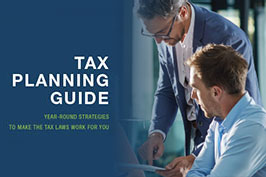4 IRS secrets
The IRS has one job and one job only: the collection of taxes for the federal government. If you don’t pay your taxes in full when you file your return, the agency will start sending you letters in the mail as part of their collection process.
The first letter will be a bill for tax due plus any interest and/or penalties. If you don’t pay your first bill, you will receive at least one more bill requesting that you pay your bill and notifying you about the interest and/or penalties that are accruing on your account.
Still have an unpaid bill? The IRS will begin collection actions which can range from applying your subsequent tax year refunds to your bill to seizing your property and assets and even garnishing your wages.
Don’t panic if you’re not financially able to pay your taxes when you file your return. You have options including:
- Applying for an Installment Agreement or Payment Plan
- Applying for an Offer in Compromise if you meet the eligibility requirements
Never heard of these options before? Not surprising. The truth about the IRS is that it does its darndest to keep certain facts under wraps because taxpayers could use information about payment options, for example, to defer paying their taxes.
What other IRS secrets could actually help you get back some of your money?
Testimonial
What they don’t want you to know
The following are some of the best kept secrets of the IRS:
- Your probability of being audited is extremely low
- The IRS may owe YOU money
- Donations are your friend
- You may be able to retire early
Fewer than 1% of taxpayers are actually audited due repeated budget cuts; if cuts continue, those audit rates will decline as well.
If the agency doesn’t issue your refund within 45 days of the date that it accepted your return, or the returns’ due date, the IRS owes you interest for every date that your refund is late.
Once you turn 70 ½ , you’re required by the IRS to start withdrawing a minimum amount from your tax-deferred retirement accounts every year. To reduce your tax liability and avoid paying income taxes on that money, consider donating a portion of it to charity instead.
CTA – Your tax planning guide

And, on the topic of withdrawing money from your tax-deferred IRA or 401(k), want to do so before you’re 59 ½ ? You can take advantage of the “substantially equal periodic rule” if you want to retire early. You will have to commit to taking out the exact same amount from your retirement account every year to avoid paying penalties on the distributions.
This doesn’t mean you should keep secrets from the IRS
These and other “IRS secrets” could help you save money, especially if you’re in a financial bind and can’t pay your full tax bill when you file.
But, don’t make the mistake of not filing your taxes and/or not paying them. Attempts at tax collection by the IRS can continue for up to 10 years from that date that they were assessed.
Avoid making costly mistakes by enlisting the services of a personal CPA at GYL CPAs and Advisors to help you with tax planning strategies. Check out our website to find out what happens if you don’t pay taxes.
